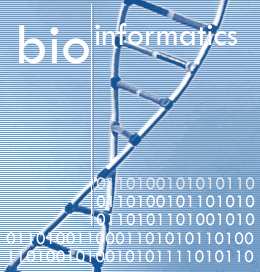Home » Infrastructure » Here
In this section
Bioinformatics, Biostatistics & Medical Informatics
 Massive amounts of data are being generated for biomedical research purposes using ultra-high-throughput assays and technologies, such as gene expression microarrays, proteomics platforms, high-throughout sequencing technologies and imaging devices. This wealth of information, especially when combined with medical record databases and other clinical and epidemiological data, create unprecedented opportunities in translational research.
Massive amounts of data are being generated for biomedical research purposes using ultra-high-throughput assays and technologies, such as gene expression microarrays, proteomics platforms, high-throughout sequencing technologies and imaging devices. This wealth of information, especially when combined with medical record databases and other clinical and epidemiological data, create unprecedented opportunities in translational research.
Informatics helps scientists to make sense of all this data and thereby plays a critical role in expediting the application of research findings from the bench to the bedside.
The STSI has developed rigorous and comprehensive informatics and data analysis strategies and resources for translational research. The institute’s expertise and capabilities in informatics are summarized below. To obtain more information, investigators may use the online form.
Bioinformatics
The STSI’s bioinformatics resources are used to further the institute’s collaborations, in-house data analyses, training of researchers and novel methods of development in all areas of quantitative science essential to translational research. At the STSI, bioinformatics is applied primarily to genomics research, expecially studies involving large-scale DNA sequencing.
STSI researchers consult and collaborate with investigators about:
- Sequence analysis and variant detection from next-generation sequencing data.
- Phenotype association analysis of genome-wide and candidate gene sequencing and genotyping studies.
- Assay design for directed high-throughput sequencing studies.
- In silico functional analysis of variant data.
- SNP and candidate gene selection for genotyping and sequencing studies.
- Development of genomic data management and analysis tools and techniques.
For more information:
video & brief bio of Ali Torkamani, Ph.D., Assistant Professor at STSI.
video & brief bio of Vikas Bansal, Ph.D., Research Scientist III (Bioinformatics)
view video of Kai Post, M.S., Senior Bioinformatics Programmer.

Biostatistics & Study Design
The STSI’s biostatistical support team is collaborating with investigators at The Scripps Research Institute, Scripps Health physicians and researchers at the West Wireless Health Institute to develop statistical methodologies aimed at clinical investigations, and in particular individualized medicine studies, while bringing wireless technology to the forefront of medical care.
Current projects include the design of gene-based and “N-of-1” clinical trials (including a N-of-1 investigation on hypertension) and a validation study on the “pocket-mobile-echo” as a quick screening alternative to trans-thoracic echocardiography.
STSI researchers consult and collaborate with investigators about:
- General biostatistical analysis including multivariate analysis.
- Clinical trials design and analysis.
- Population science, including epidemiology, population genetics, risk profiling
- Power and sample size calculations.
For more information:
video & brief bio of Betsy Lillie, Ph.D., STSI Clinical Biostatistician

Research Medical Informatics
STSI informatics staff are working to enhance researchers’ access to medical record databases, data warehouses and other sources of valuable clinical data for translational research. To assist investigators, STSI informatics staff compiled Scripps Health Clinical Data Resources for Research. To further support researchers, STSI, through The Scripps Research Institute, is participating in a multi-institutional VIVO pilot program to enhance research collaborations. STSI recently implemented REDCap, a novel workflow methodology and software tool that expedites the electronic collection of research data from a single site or multi-site clinical and translational research study. The software supports a secure web-based application for developing fully functional case report forms (CRFs) and surveys.
To streamline research administration capabilities of both STSI and Scripps Health, STSI informatics staff has developed databases such as the CTSA Annual Progress Reporting (APR) application and other projects. By actively participating in the national CTSA Consortium’s informatics activities, STSI staff will continue to incorporate new tools to support investigators and administrative staff.
STSI informatics staff consult and collaborate with investigators in:
- Analyzing data needed for proposed clinical study.
- Matching data needs with specific Scripps Health clinical systems.
- Developing data requests.
- Recommending database and forms design.
- Evaluating software tools to support researcher & administration needs.
- Analyzing information systems requirements, systems evaluation, purchase and/or development and implementation activities
For more information:
Sandy MacKenzie, M.B.A.
Manager, STSI Research Medical Informatics
858-554-5744; .(JavaScript must be enabled to view this email address)
